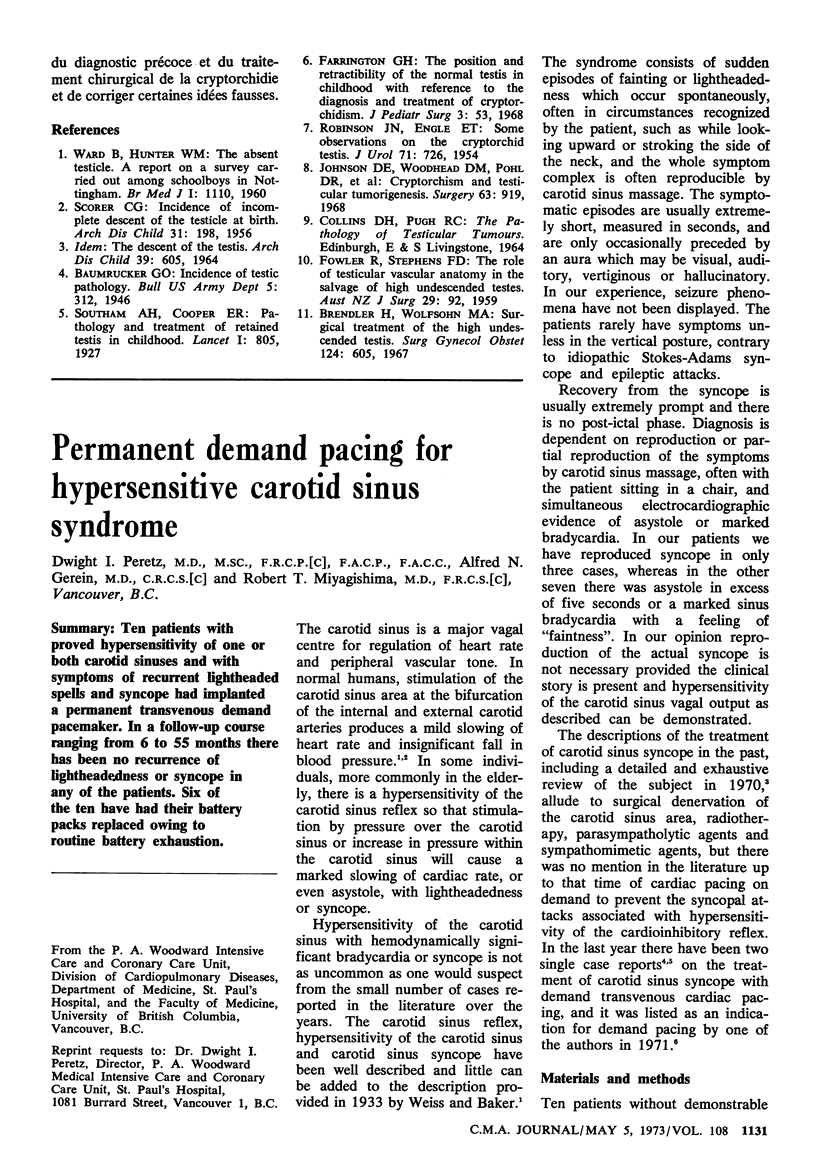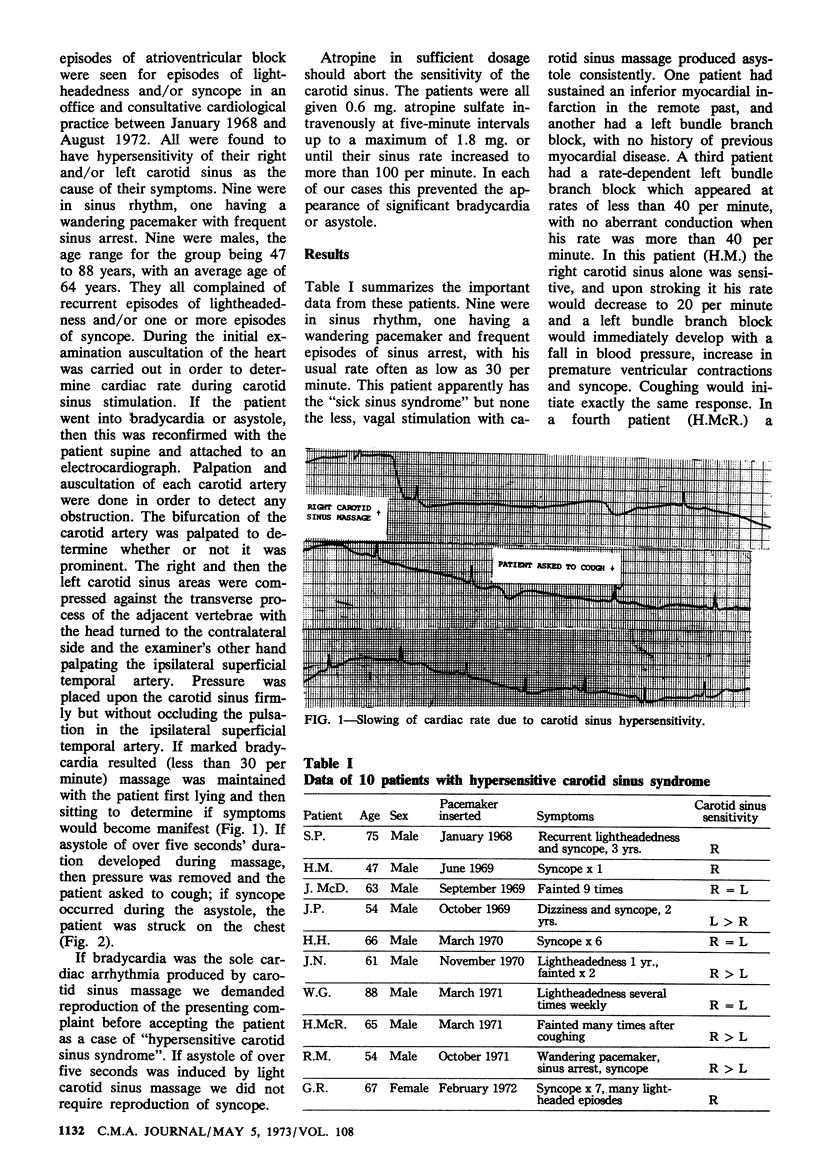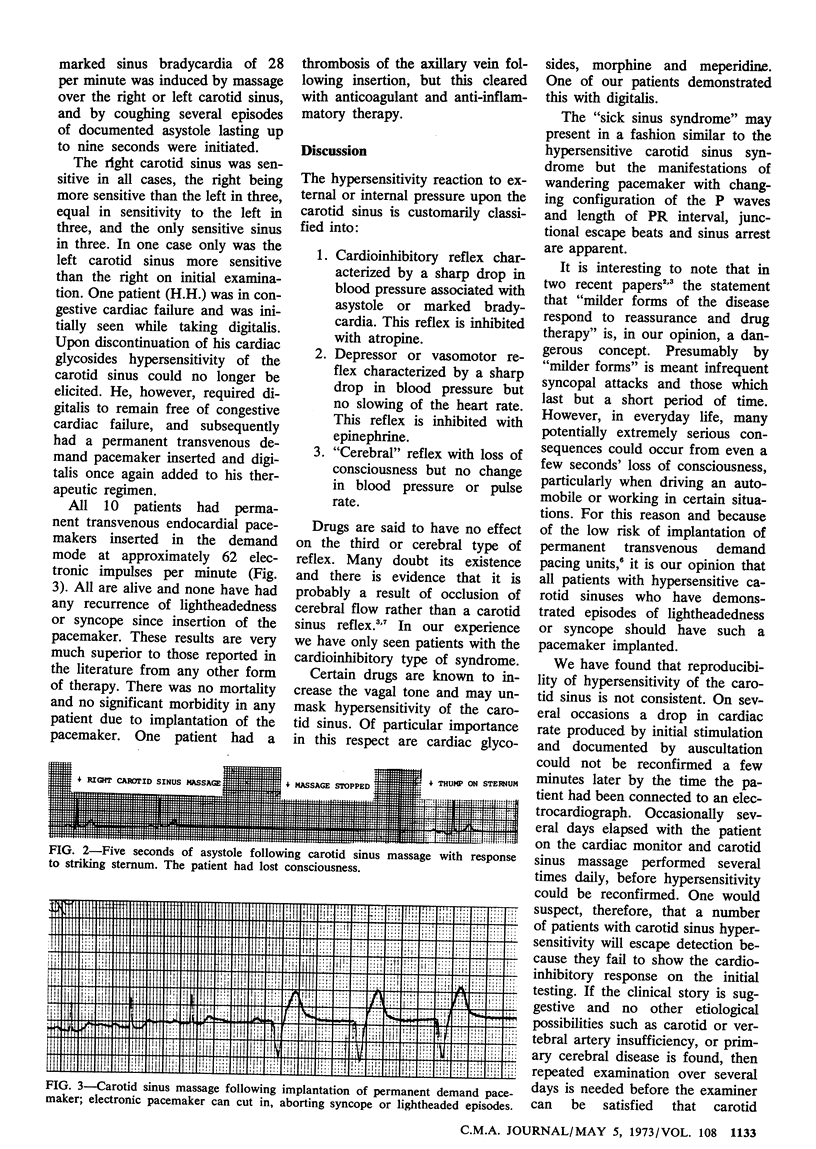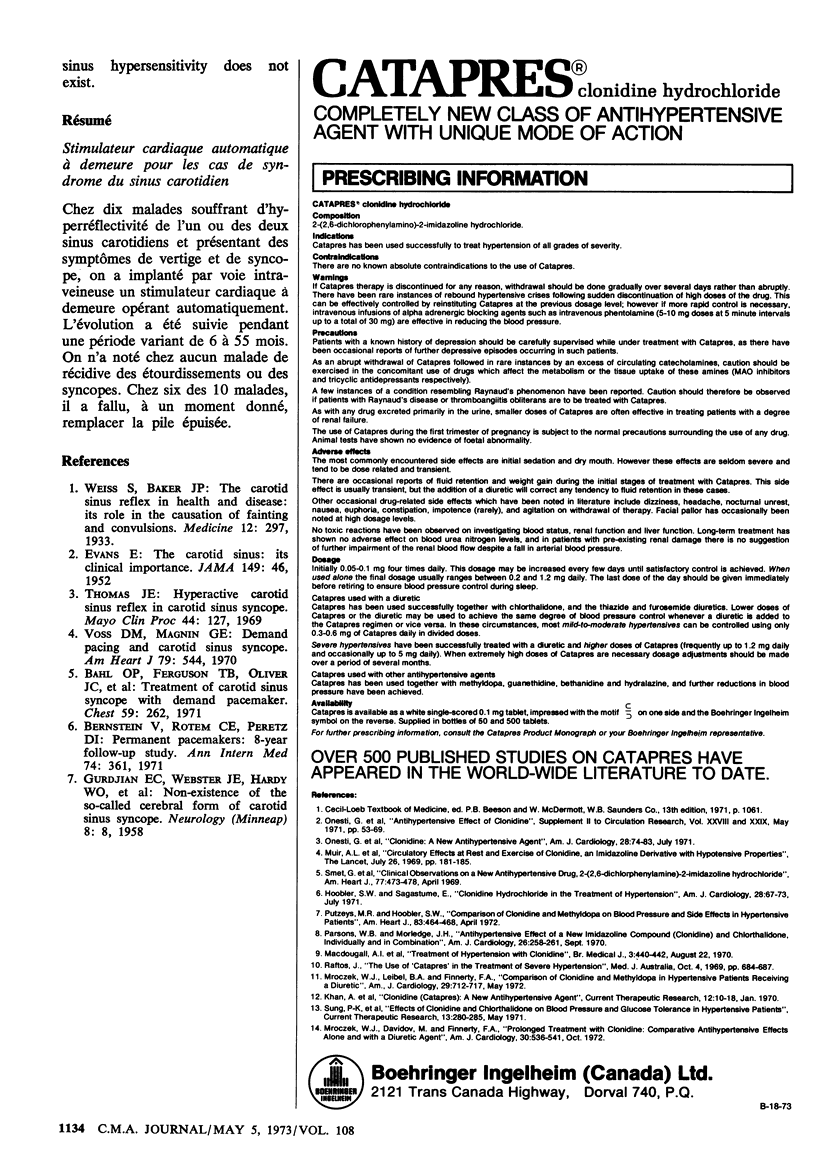Abstract
Ten patients with proved hypersensitivity of one or both carotid sinuses and with symptoms of recurrent lightheaded spells and syncope had implanted a permanent transvenous demand pacemaker. In a follow-up course ranging from 6 to 55 months there has been no recurrence of lightheadedness or syncope in any of the patients. Six of the ten have had their battery packs replaced owing to routine battery exhaustion.
Full text
PDF



Selected References
These references are in PubMed. This may not be the complete list of references from this article.
- Bahl O. P., Ferguson T. B., Oliver G. C., Parker B. M. Treatment of carotid sinus syncope with demand pacemaker. Chest. 1971 Mar;59(3):262–265. doi: 10.1378/chest.59.3.262. [DOI] [PubMed] [Google Scholar]
- Bernstein V., Rotem C. E., Peretz D. I. Permanent pacemakers: 8-year follow-up study. Incidence and management of congestive cardiac failure and perforations. Ann Intern Med. 1971 Mar;74(3):361–369. doi: 10.7326/0003-4819-74-3-361. [DOI] [PubMed] [Google Scholar]
- EVANS E. The carotid sinus: its clinical importance. J Am Med Assoc. 1952 May 3;149(1):46–50. doi: 10.1001/jama.1952.02930180048010. [DOI] [PubMed] [Google Scholar]
- JOYNT R. J. Mechanism of production of papilledema in the Guillain-Barre syndrome. Neurology. 1958 Jan;8(1):8–12. doi: 10.1212/wnl.8.1.8. [DOI] [PubMed] [Google Scholar]
- Thomas J. E. Hyperactive carotid sinus reflex and carotid sinus syncope. Mayo Clin Proc. 1969 Feb;44(2):127–139. [PubMed] [Google Scholar]
- Voss D. M., Magnin G. E. Demand pacing and carotid sinus syncope. Am Heart J. 1970 Apr;79(4):544–547. doi: 10.1016/0002-8703(70)90261-9. [DOI] [PubMed] [Google Scholar]


